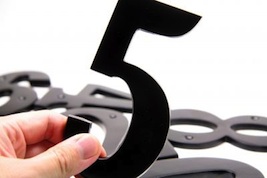 By Alex Salomon
By Alex Salomon
It’s been a busy week for global news and financial media, covering rising fanaticism and related tragedies abroad, as well as the vastly important Central Bank interventions occurring around the world. Stay tuned, as I plan on writing a longer blog entry about “Interventionism vs. Free Markets.” Well, at least more than we will cover here.
So, without further adieu, here are my “5 Thoughts” for the week:
1. Fake is fake … or maybe not? Following the incredible bout of TV media coverage regarding the ECB & Fed interventions, the mantra that keeps on coming back was that the recovery is all built on “fake money.” Regardless of one’s view on the entire topic of interventionism, I cannot help but find it highly ironic that media bashes fake money, yet so much of the news they report is “not news.” It’s recycled, predictive, and re-hashed. So, is it OK to bash “fake” money, but not “fake” news? I stand in the camp of those believing that 24-hour TV news cycle killed the news!
2. Building on the topic, I realized this past week that most of the serious investors and traders I follow and read continuously advise to not listen to mainstream media to form one’s opinions on investments, trades and finances. Yet, most of them listen to mainstream media’s version of geopolitical news and report. I came away puzzled: I respect this group — that is the reason I avidly read their columns and opinions — and most of that group does not apply its own medicine (tune out the noise) when it comes to geopolitics.
Granted, this “revelation” is flawed because I am basing it on a generalization, but the point remains: if you advise to tune out the noise, it should apply to economics, politics and geopolitics; not just one “-ics.”
3. More building on the topic, the tragic events in Northern Africa (not Middle-East — first common mistake!) during the week are just that: tragic. But if you agree to seeing both sides, keep in mind that (1) people in non-democratic regimes (or lesser-democratic) are constantly being manipulated; (2) they do not have freedom of speech and thus, rarely understand the concept; (3) no matter how you cut it, current events are linked to the fact that the US diplomacy is being successful in getting closer to Northern Africa’s new regimes — and fanatics see that progress and are pushing back; (4) right or wrong, the USA has also been the master at using “agents provocateurs” and taught the rest of the world how to do it: our own technic is being used against us!
A tragedy remains a tragedy and violent, blind, fanatic uprising are always troublesome. But things are rarely what they look like at face value. Remember: we too, even with Freedom of Speech so few enjoy, are subject to PROPAGANDA!
4. Further building on the topic, I am mostly saddened to live in a society that still uses tragedy for political agendas. It is what it is and it is the world I live in and I do not have a choice. But I hope that mankind, some day, will find a better way to engage and lead. I know I am dreaming (again! I do that a lot) but I hope we will find a way to appeal and inspire citizens in different ways than using, bashing, mocking tragedies.
I also have a mental block (difficult to explain in a blog) with the fact that some human lives are worth politicking while others are not. On the day of the Libyan tragedy, it can be argued that about 100 fellow citizens were killed by impaired drivers. Yet, none of the Elections candidates went on a crusade against impaired driving — when it is something we could actually control more than riots and fanatics.
OK, I am being simplistic. But a life is a life and a tragedy is a tragedy and a mother who loses her son in a car crash has the same pain and anger that Amb. Chris Stevens’s mother has.
5. Finishing on the topic, in the wake of yet another wave of “CBI” (Central Bank Interventionism!), I am led to wonder why we collectively claim (sometimes pretending, sometimes genuinely) that we deserve free (freer?) markets — when we certainly do not have freer politics and we are not doing much to get them. Why should we expect free markets in a world where the political and financial meddling is so strong, so insane, so incestuous? Why should we deserve free markets when our politics are so influenced by financial and private interests? Is it disingenuous to demand free markets when we accept financial contributions to electoral campaigns by large investment companies?
Considering that elected officials choose or influence the choice of key Central Bankers, shouldn’t we free the politics before we free the markets?
Have a wonderful week and thanks a lot for putting up with my less common view of the world!
—————————————————————-
Twitter: @alex__salomon @seeitmarket Facebook: See It Market
Any opinions expressed herein are solely those of the author and do not in any way represent the views or opinions of any other person or entity.








